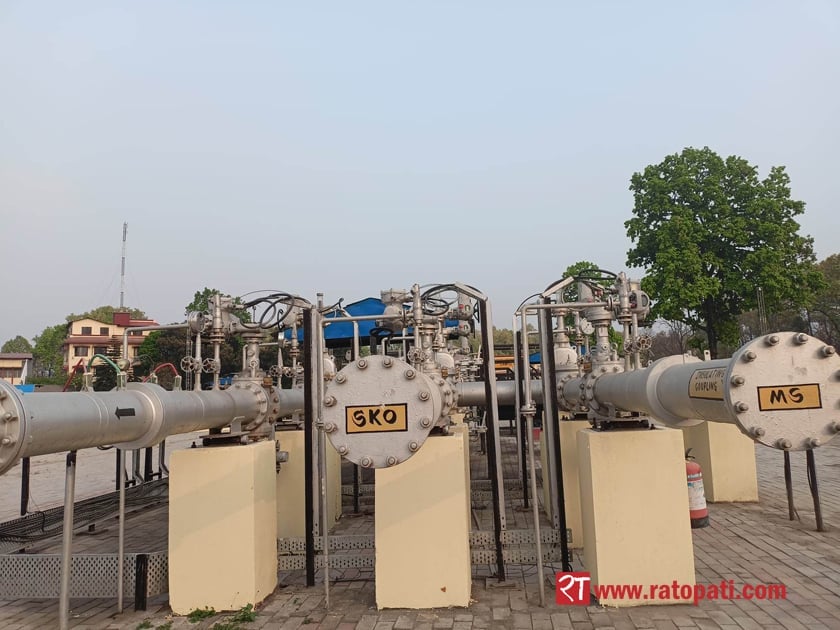Testing begins for petroleum imports via Motihari-Amlekhgunj pipeline

Hetauda, December 28 — Testing has begun for the import of petroleum products through the pipeline from Motihari, India, to Amlekhgunj in Bara. The test started after the completion of the petroleum pipeline extension.
The expansion of the Motihari-Amlekhgunj petroleum pipeline has been completed, and the import of petrol and kerosene through the pipeline has started, informed Pralayankar Acharya, the head of the Nepal Oil Corporation’s Madhesh provincial office in Amlekhgunj.
“We have brought 5,500 KL of petrol and 1,000 KL of kerosene for pipeline testing," said Acharya. "The testing of the petroleum products imported through the pipeline is ongoing." He also mentioned that preparations for regular import of petroleum products through the pipeline are underway.
“Although the regular import of petroleum products through the pipeline was planned to begin in January 2025, due to incomplete preparations, it will be delayed by a few days,” he added.
Under the pipeline extension project, the Indian Oil Corporation has built two petrol tanks with a capacity of 4,100 KL each at the Amlekhgunj depot, two 200,000 KL capacity transmix tanks, 24 fully automatic loading ways-refillers for petrol transportation, a pump house, and a laboratory, Acharya informed.
The project also includes the upgrading of the fire fighting system, a water and oil separation OWS system, and a PMCC room. The infrastructure work was contracted to Likhita Infrastructure Pvt. Ltd., with the goal of completing the entire infrastructure by 2023. However, due to various reasons, the pipeline expansion work was only recently completed, said Acharya.
Similarly, two transmix tanks and a 3,000 KL firewater tank have been constructed by the Indian Oil Corporation for mixed fuel (both petrol and diesel) and for the depot’s security.
The first phase of the project, which began on September 2020, has been completed, and diesel has been imported through the pipeline. After the second phase of the project is finished, petrol and kerosene will also be imported via the pipeline.
"Although it is possible to import petrol and kerosene through the same pipeline, due to the lack of storage capacity, we had to import the petroleum products by tanker," Acharya explained. "Once the project is fully completed, petrol, diesel, and kerosene will all be regularly imported through the pipeline."
The import of petroleum products via the Motihari-Amlekhgunj pipeline will result in zero technical losses, save transportation costs, and contribute to reducing environmental pollution, according to Acharya.
Upon the completion of the project, the Amlekhgunj depot will have a storage capacity of 24,840 KL for diesel and 16,630 KL for petrol.









Leave Comment